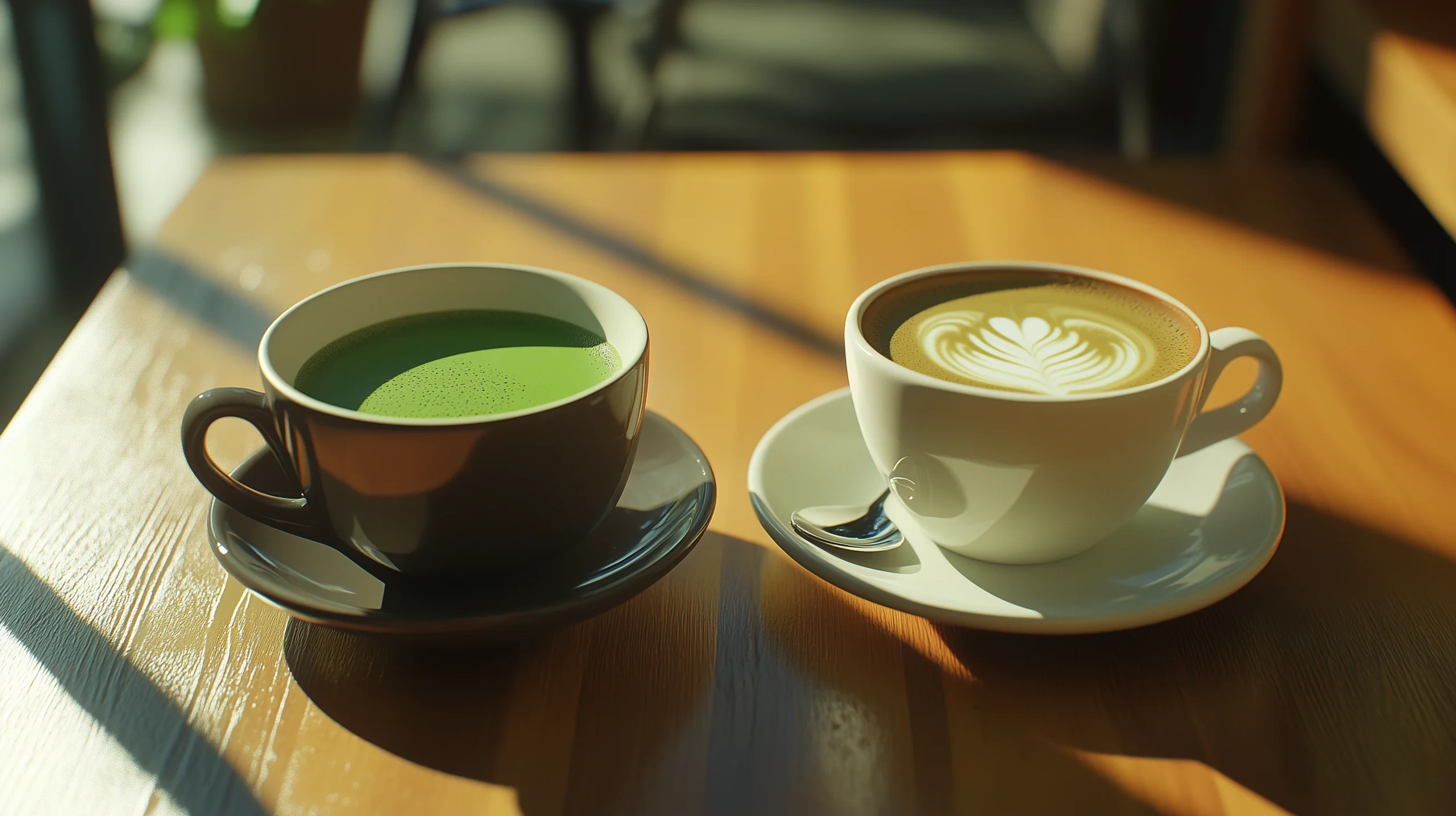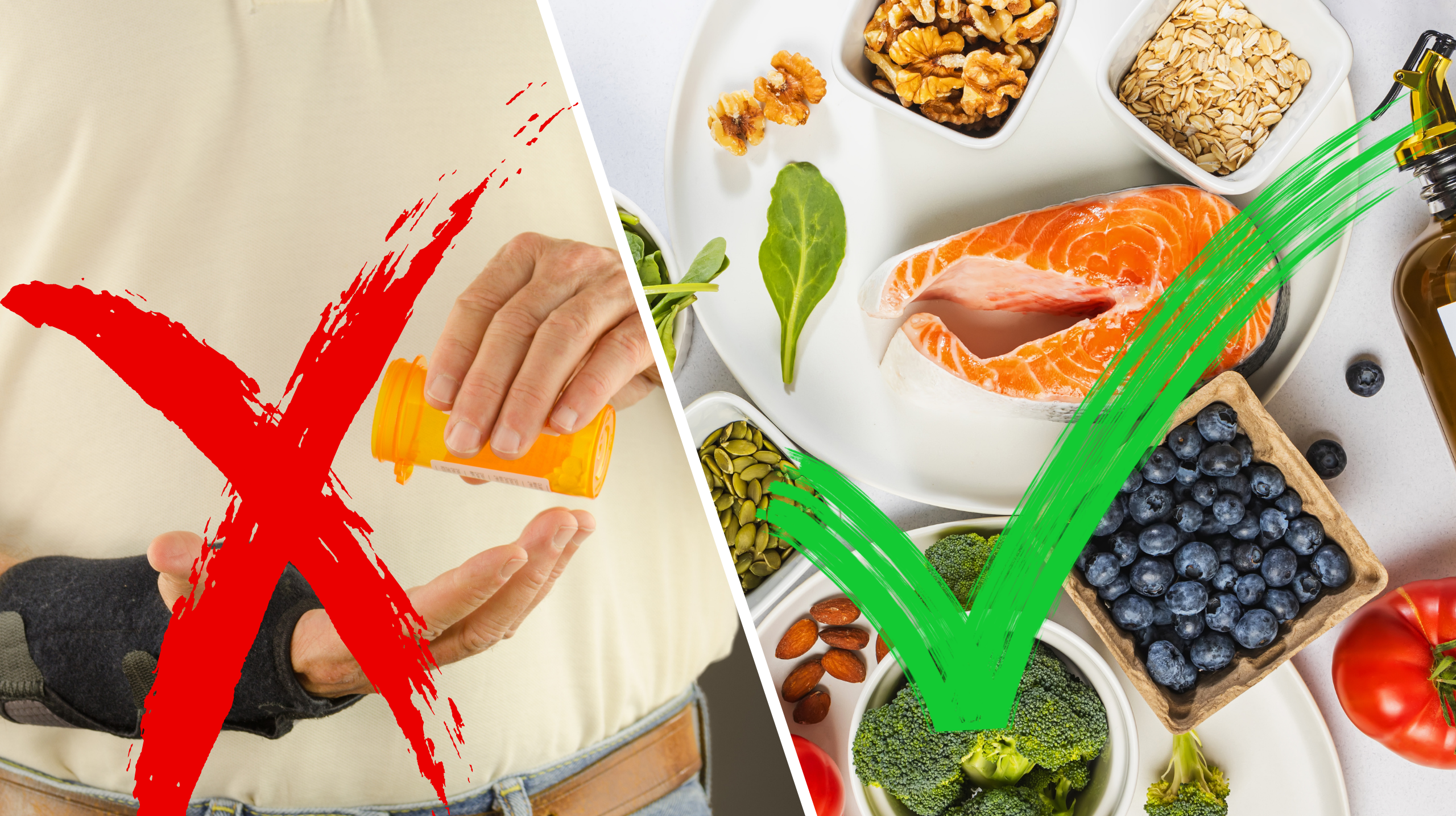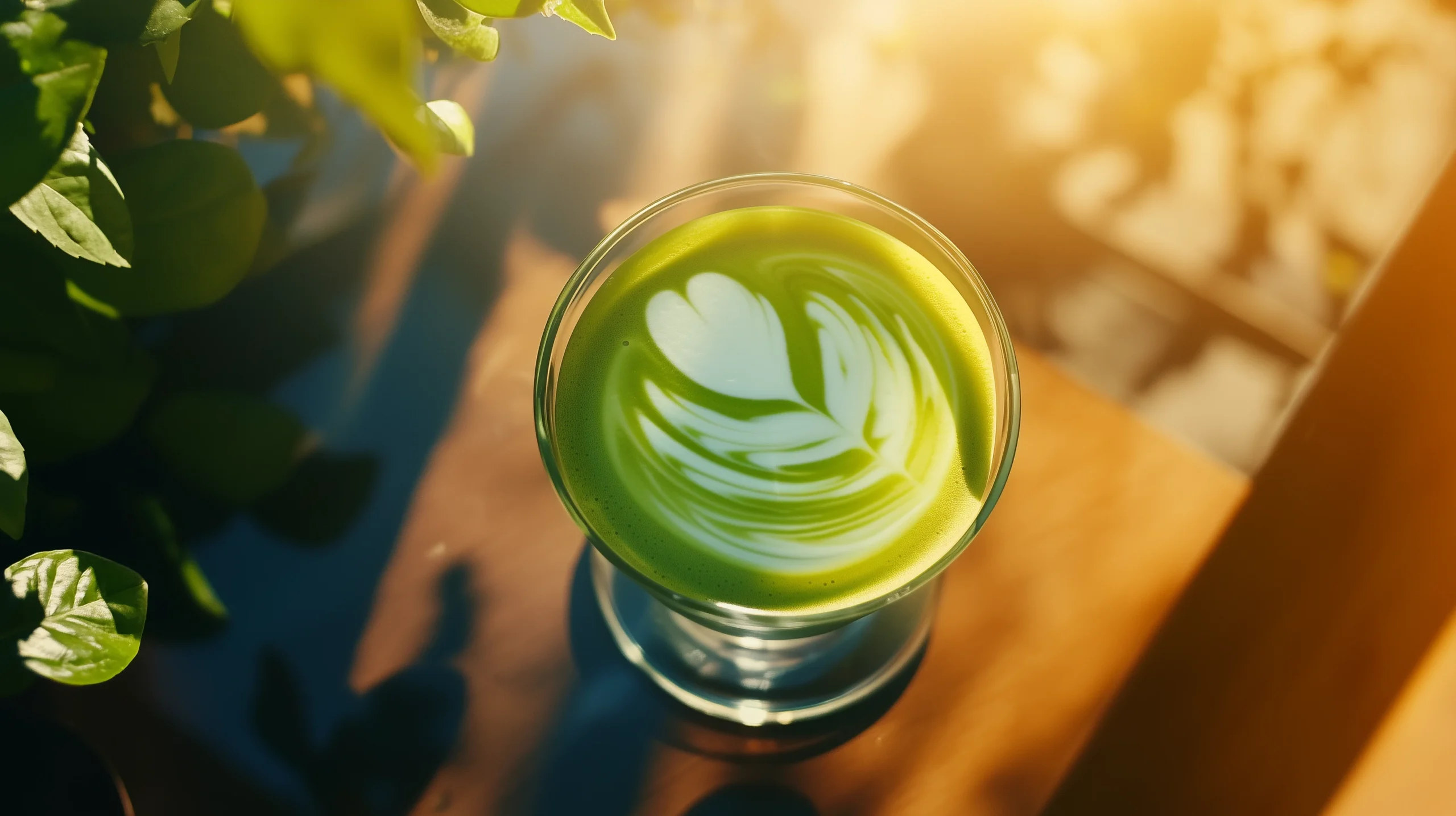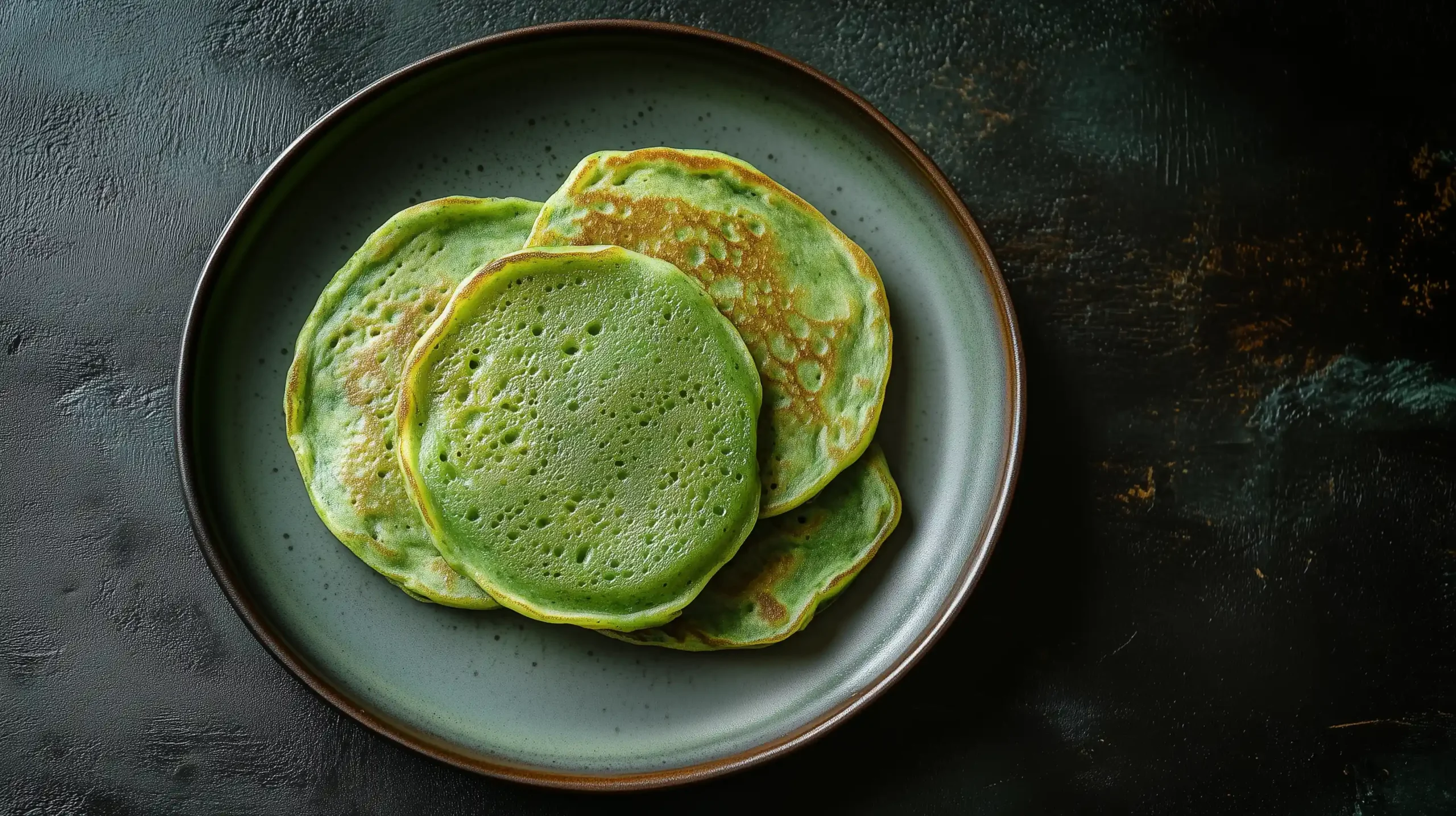The morning ritual of choosing a caffeinated beverage is common worldwide, with coffee and matcha being two popular options. While coffee has long held a throne in the realm of stimulants, matcha, with its unique health profile, is challenging its dominance, especially when it comes to reducing inflammation. Here’s a comparative analysis:
Caffeine Content: A Gentle Boost
- Coffee: A standard cup of coffee contains around 95 mg of caffeine. This rapid release of caffeine can lead to the well-known ‘coffee jitters’, an adrenaline spike followed by a crash[^1].
- Matcha: An 8-ounce cup of matcha contains approximately 70 mg of caffeine, absorbed slowly due to the presence of L-theanine, which results in a sustained energy boost without the crash[^2]. This gentle release is beneficial for those looking to avoid the highs and lows associated with coffee.
Inflammation: Where Matcha Excels
Coffee:
- While coffee does have some anti-inflammatory benefits, particularly through its antioxidant properties, it also has downsides:
- High acidity can exacerbate conditions like acid reflux or gastritis.
- Coffee can increase cortisol levels, which in chronic settings might contribute to stress-related inflammation[^3].
Matcha:
- Matcha contains catechins, which have potent anti-inflammatory properties — the most abundant being epigallocatechin gallate (EGCG). Here’s how matcha stands out:
- EGCG and Inflammation: Studies have indicated that the EGCG in matcha can lower markers of inflammation, including CRP and IL-6, which may help mitigate risk for chronic diseases linked to inflammation[^4].
- L-theanine: This amino acid not only balances the stimulating properties of caffeine but also reduces stress-induced inflammation with its relaxing effects[^5].
- Antioxidant Capacity: The antioxidant profile of matcha (including chlorophyll) may help counteract oxidative stress, one of the drivers of inflammation[^6].
Nutrient Profile: More Than Just Caffeine
- Coffee: Offers various compounds including chlorogenic acids with antioxidant capabilities, but does not possess the array of nutrients that matcha does[^7].
- Matcha: Contains abundant vitamins A, C, E and many B vitamins along with minerals like potassium, calcium and iron This nutritional diversity fosters health in ways that can, by extension, help mitigate inflammation[^8].
Acidity and Digestive Health
- Coffee: High acidic content that can cause digestive pain in some people, thus possibly resulting in higher inflammation in the gut[^9].
- Matcha: Matcha is a less acidic tea, which may be beneficial for anyone with a sensitive stomach. Because it is so alkalizing, its pH balancing action in the body can be beneficial for inflammation[^10].
Oral Health
- Coffee: While it can stain teeth and has been associated with dry mouth, indirectly contributing to dental health problems.
- Matcha: Matcha contains compounds called catechins that can actually suppress the growth of bacteria responsible for tooth decay and gum disease, providing additional oral health support.[^11].
Mental Health and Focus
- Coffee: The quick caffeine hit can enhance alertness but might lead to increased anxiety in some.
- Matcha: Caffeine + L-theanine in matcha is well-known to enhance focused attention and memory while having anxiolytic effects by reducing chronic stress-induced inflammation.[^12].
Why Matcha Might Be the Better Choice
When looking at these two options through the lens of reducing inflammation, matcha wins in the head to head matchup. Heres why:
- This combination of EGCG, L-theanine, and other antioxidant properties offer a holistic approach to fighting inflammation.
- This is precisely the spike and crash that will make you feel more inflamed, which matcha’s caffeine does not do since it is metabolized differently, maintaining a stabilizing energy level.
- The nutrients in matcha work together to support even more health benefits, making it a key aspect of an anti-inflammatory lifestyle.
However, both beverages have their place. If you want a drink that will not only wake up your brain, but which may also help your body fight inflammation in the process, then matcha is an obvious daily winner.
Explore Our Organic Matcha for Inflammation Reduction
Experience the benefits of Organic Matcha with our carefully sourced, high-quality product. It’s a step towards a healthier you.
Sources:
[^1]: Fredholm, B. B., et al. (1999). Actions of caffeine in the brain with special reference to factors that contribute to its widespread use. Pharmacological Reviews, 51(1), 83-133.
[^2]: Unno, K., et al. (2018). Anti-stress effects of drinking green tea with lowered caffeine and enriched theanine, epigallocatechin and arginine on psychosocial stress induced adrenal hypertrophy in mice. Phytomedicine, 42, 136-141.
[^3]: Lovallo, W. R., et al. (2006). Caffeine stimulation of cortisol secretion across the waking hours in relation to caffeine intake levels. Psychosomatic Medicine, 68(5), 734-739.
[^4]: Ahmed, S., et al. (2016). Regulation of interleukin-1beta-induced chemokine production and matrix metalloproteinase 2 activation by epigallocatechin-3-gallate in rheumatoid arthritis synovial fibroblasts. Arthritis Research & Therapy, 18(1), 238.
[^5]: Nobre, A. C., et al. (2008). L-theanine, a natural constituent in tea, and its effect on mental state. Asia Pacific Journal of Clinical Nutrition, 17(Suppl 1), 167-168.
[^6]: Lin, Y., et al. (2018). Effects of matcha green tea powder on metabolic syndrome in high-fat-diet-induced obese mice. Journal of Nutritional Science and Vitaminology, 64(6), 432-440.
[^7]: Crozier, T. W., et al. (2012). Cofactor interactions in the regulation of the antioxidant activity of chlorogenic acid in coffee. Food Chemistry, 132(4), 2057-2063.
[^8]: Yamaguchi, T., et al. (1998). HPLC method for evaluation of the free radical-scavenging activity of foods by using 1,1-diphenyl-2-picrylhydrazyl. Bioscience, Biotechnology, and Biochemistry, 62(6), 1201-1204.
[^9]: Boekema, P. J., et al. (1999). Effect of coffee on gastro-oesophageal reflux in patients with reflux disease and healthy controls. European Journal of Gastroenterology & Hepatology, 11(11), 1271-1276.
[^10]: Davies, S., et al. (2017). Acidity and alkalinity: The effect on metabolism and the body. European Journal of Nutrition, 56(8), 2519-2530.
[^11]: Narotzki, B., et al. (2015). Green tea: A promising natural product in oral health. Archives of Oral Biology, 60(3), 420-427.
[^12]: Dietz, C., & Dekker, M. (2017). Effect of green tea phytochemicals on mood and cognition. Current Pharmaceutical Design, 23(19), 2876-2905.






